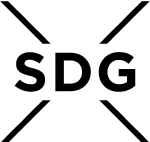Access to education is a fundamental right in most countries across the world. And yet it either does not translate into much for some people (girls for instance) or excludes others (refugees and migrants for instance). According to a recent UNHCR report, 48% of all school-age refugee children are out of school, only 31% of ‘displaced’ children are enrolled in primary and secondary schools, and only 3% of refugee students are currently enrolled in higher education. Social norms (for girls) and the lack of documentation and impact of trauma (for refugees and migrants) remain some of the key reasons behind this exclusion.
The panel will discuss questions such as:
- What do we know about the nature and extent of identity-linked exclusion in school and higher education across the world?
- Which communities are most at risk?
- What are the different kinds of actions that are needed to address this?
- What role do different players in global development need to play more actively to address this issue?
- What is the role that data and measurement play and how can we improve our understanding of this issue?
- What are some innovations or successful examples we can learn from.
Moderator for the session: Dayoung Lee (Associate Partner, Dalberg Advisors)

